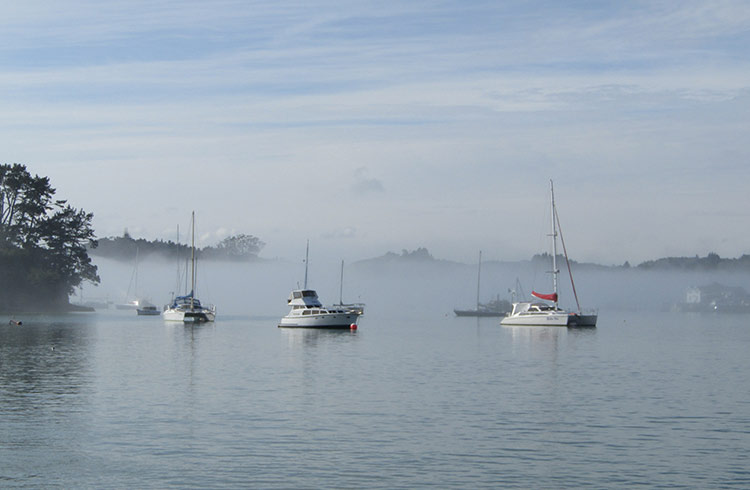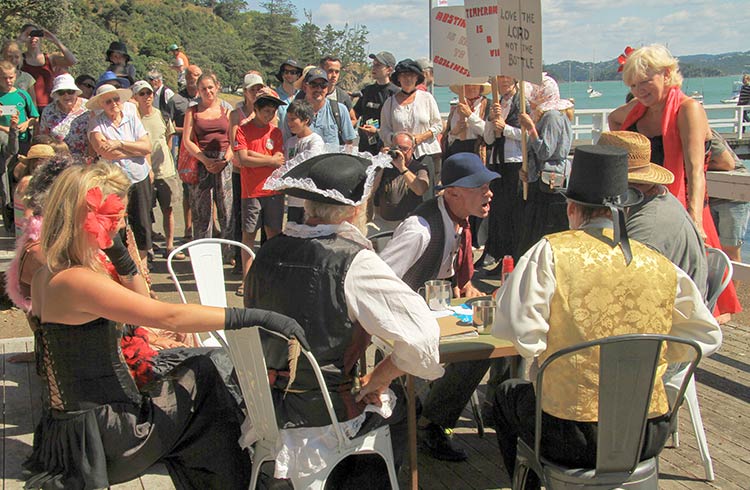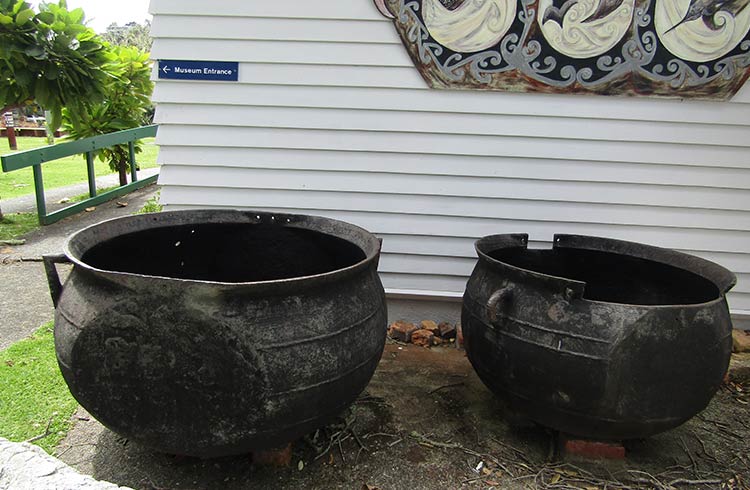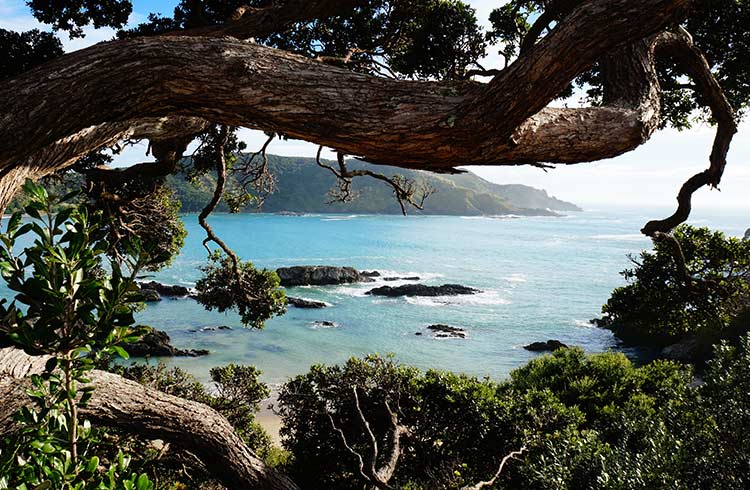Why the Town of Russel Was Once the "Hell Hole of the Pacific"
The peaceful resort town of Russell on New Zealand's North Island is well known for appealing architecture and the beautiful Bay of Islands beach. Don’t be fooled.
 Photo © Sandy Myhre
Photo © Sandy Myhre
Our insider, Sandy Myhre, takes a stroll through Russell to find out why this small town in the Bay of Islands was once dubbed the 'Hell Hole of the Pacific'.
- Rascals and reprobates
- Whalers, sailors, and traders
- Pistols at dawn
- Christ Church
- Pompallier House
- Getting there
Rascals and reprobates
Head to the Duke of Marlborough Hotel right near the wharf. This hotel has served rascals and reprobates since 1837, and inside you’ll see the original liquor license which still hangs over the bar.
A street theater re-enactment of the 1800s takes place on the waterfront in January each year. Scoundrels can be put in the stocks near the wharf as strumpets entice visitors.

Walk north to Tapeka Point and climb Flagstaff Hill. Here, the Maori chief, Hone Heke, famously chopped down the British flagpole four times between 1844 and 1845. This site is no doubt significant, and the view is spectacular.
Whalers, sailors, and traders
Back in town, a modest museum in York Street tells a mammoth story. By 1830 Kororareka was one of the largest whaling ports in the Southern Hemisphere, as a staggering 3,000 whaling ships came and went from the bay.
Around 400 or more sailors would ‘rest’ ashore and contribute to two other major industries – local ‘ladies’ and liquor. Kororareka had more whorehouses than storehouses, more madams than missionaries, more grog than groceries.
A museum shed on the foreshore has one of only six oar-powered whaleboats left in the country. The harpoonist anchored his knee in a rounded gap near the bow called the ‘clumsy cleat’ before aiming for the kill.
Outside there are cast-iron whale pots, a couple of old anchors and a mechanical pulley used for dragging whales on to the beach.

The canon near the beach came from the Sourabaya, broken up in Russell in 1840, the year the Treaty of Waitangi was signed between the British and Maori.
Pistols at dawn
New Zealand’s first duel was contested in Russell in 1837 between merchant Joel Polack and innkeeper Ben Turner. Turner was wounded. They were at it again five years later when Polack was shot in the elbow and Turner received a bullet in the cheek.
Head a block back from the beach to Church Street, to find another superb source of colonial data at Christ Church.
Christ Church
The quaint Anglican church is the oldest building in New Zealand still used for the original purpose. The first service was on 3rd January 1836.
Hone Heke was busy again in 1845 when he and Te Ruki Kawiti attacked Kororareka. HMS Hazard evacuated the British, but the subsequent fire destroyed Joel Polack’s house and nearly the entire town. Six men from Hazard died and are buried in the graveyard.
During the battle, the church was hit by musket shot and the holes on the western side are still visible today.
The graveyard hosts the country’s first surgeon, the second white (Pakeha) girl born in New Zealand, the first Maori woman to marry a Pakeha man, and Henry Tapua Athleston Stevenson whose great-great-grand-daughter is married to Sir Billy Connolly.
A prominent headstone acknowledges influential Maori chief, Tamati Waka Nene, one of the first Maoris to convert to Christianity and one of the first to sign the Treaty of Waitangi. The Treaty Grounds are visible across the bay and worth a visit.
The oldest existing grave is that of so-called reprobate William Skinner. and an unmarked grave belongs to John Poyner – an escaped convict turned grog-seller.
A Christ Church Cemetery Trail booklet that chronicles many more of these sepulcher stories, and a cemetery map, can be purchased at the Russell Museum.
Pompallier House
Head back to the beach and wander south to the end of the foreshore road to find New Zealand’s oldest rammed-earth building, named for the country’s first Catholic priest – Frenchman, Jean Baptiste Pompallier.
This is where the country’s first printing press can be found, and, today, heritage tours can demonstrate the still-working presses.
Getting there
Getting to Russell in the Bay of Islands can be achieved two ways – by car ferry from Opua or passenger ferry from Paihia.
Related articles
Simple and flexible travel insurance
You can buy at home or while traveling, and claim online from anywhere in the world. With 150+ adventure activities covered and 24/7 emergency assistance.
Get a quote

No Comments